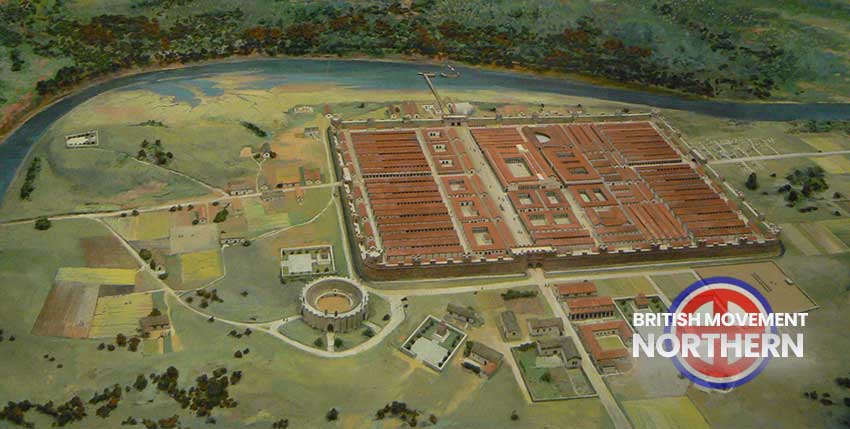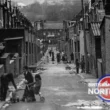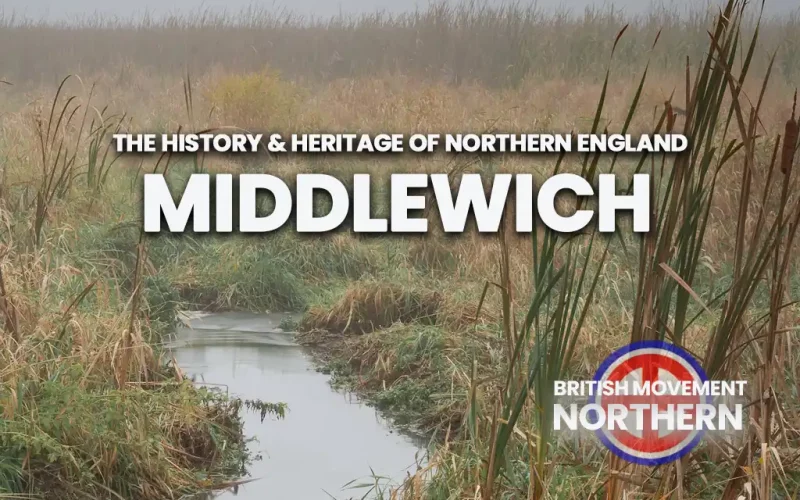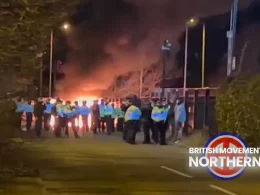The town was in the past known as Middwych and in the Domesday Book, it was recorded as Midestvich. Across the mediaeval period, the town was also known as wic, wich, Medius Wichus, and Middewiz. Middlewich is one of the ‘Salt towns’ of East Cheshire and has a long and rich history.
In the period of history before the Roman invasion of Britain, the settlements around the area that would become Middlewich were ruled by the Celtic tribe the Cornovii, who mined and traded in salt.
The Romans settled there and named the place Salinae after the abundance of salt to be mined there. Salinae became important to the Romans as a source of salt and because of its proximity to the Roman garrison and administrative centre at Deva (Chester). As a result of the trading activity a number of Roman roads passed through the area, both to Chester and northwards to the crossing point on the River Mersey. This led to the designation Medius Vicus (the town at the junction of the roads) in the later Roman era.

During the Anglo-Saxon period, Middlewich was part of the Kingdom of Mercia, as was most of modern Cheshire, the settlement was classed as being part of the territory of the Northern Mercians. The county of Cheshire first being recognised around 980 AD, which coincided with the first major incursions into Mercia by the Danes, the settlement that became Middlewich went through periods of Danish occupation and control.
In the years 1069 and 1070 in the decade following the Norman Conquest, King William the Conqueror waged a campaign of destruction across the northern shires, which came to be known as the ‘Harrying of the North’. In 1070, the Norman forces burned the town in what historians have called “an act of rage
against his rebellious barons”. The Domesday Book recorded the town as “waste,” although salt was still recorded as being produced for the local Earl. It took years for the town to fully recover from the Norman destruction.
The town recovered, and appears to have passed through Middle Ages without further serious harm, and thrived on the salt trade. The parish church in the town, St. Michael and All Angels dates back to the 12th century.
During the English Civil War, Middlewich was involved directly in the conflict. The First Battle of Middlewich was fought on March 13th, 1643. After a day of fighting, the Royalist forces were beaten and Parliamentary troops occupied the town.
The Second Battle of Middlewich was fought on December 26th 1643. An account of the fighting states that 200 Parliamentarians were killed. In the aftermath of the battle, the town was ransacked and looted by the victorious Royalist troops. Sadly for the townsfolk of Middlewich their suffering was not over as plague broke out in the following months.
Middlewich remained an affluent market town through the 18th and 19th Centuries, local markets were a focus of commerce. The Industrial Revolution brought the railways to the town in 1867, the Middlewich railway station being formerly opened in July 1868. The town also benefitted from the construction of the Trent and Mersey canal. Industrial salt production became concentrated in Middlewich and remains an important source of local employment today.

The First World War heavily impacted Middlewich, local losses on the Western Front were heavy in regard to the small size of the town, an estimated 10% of men aged between 15 and 45 years were lost.
Middlewich is a White town; the most recent census data, (2011) gives the population breakdown as White British and other White nationalities, which includes Irish and Eastern Europeans as 97.2% White, a clear recommendation.
Resources
Top Image: BM Northern
Middle Image: Łukasz Nurczyński, CC BY-SA 4.0, via Wikimedia Commons
Lower Image: Louise Rayner, Public domain, via Wikimedia Commons
The British Movement welcomes articles for possible inclusion on this site from members and supporters across the North of England. Please remember that we have to operate within the laws of this country – we will not include any content that is against the current laws of the United Kingdom. News reports should be topical and be relevant to the regions covered by this website.












